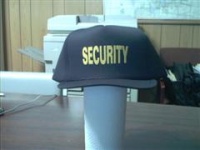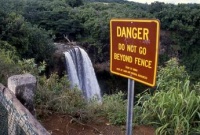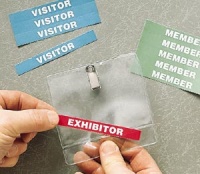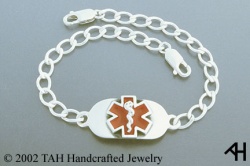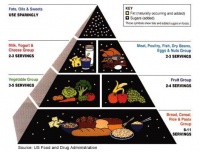User:Cdoane/Convention Security 1
Basic Convention Security Officer Course
Contents |
Introduction
We've all seen them; heck some of us have done it. Volunteer Security. Either at a Ren Faire, Star Trek Con, or some other fandom event. Despite the differences in fandom they do share one thing. The need for Volunteer Security. It is the hope of the authors that this set of Convention Security Courses will assist the Volunteer in presenting a professional and knowledgeable demeanor at any event. Volunteers come in many outfits and ID methods, no longer are they limited to the red shirt of TOS or just ID badges (though that second is a common method).
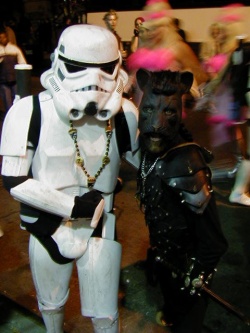
Its especially important to conduct yourself professionally in any situation and when confronted by any type of fan. These may be typical of the fans you will come across. *grin*
Chapter 1: Orientation to Volunteer Security
Orientation to Volunteer Security A security guard is a private person who is assigned to keep order or to protect property by prevention of loss, usually by maintaining a high visibility presence and observing for signs of crime, fire or disorder; then taking action and/or reporting any incidents as appropriate. The words that are very important to understand are “private person". As a Volunteer Security Officer you do NOT have any powers of arrest, forcible detention, or other police powers. Your abilities in this area are as limited as any other private citizen. Though note in different situations event coordinators can grant other powers, for example, giving authority to a VSO to judge who is allowed to be where. One should check applicable laws and event policies to be sure where one stands. With that in mind you are still there to protect the interests of the event and Patrons in so much as possible. So, other duties may include access control at points of entry by ensuring that visitors display proper passes or identification before entering. Volunteer Security are often called upon to respond to minor emergencies and to assist in serious emergencies by calling and/or guiding emergency responders to the scene of the incident and documenting what happened on an incident report. Remember you're no replacement for an EMT, no matter how many times you've seen MASH *grin*. Unless you are a medical professional leave the serious items in the care of same.
It is not required but HIGHLY encouraged for Volunteer Security to be certified in First Aid/CPR, as you are likely to be first on the scene of a medical problem and this will help you to follow proper procedure. Also if the event you are working has medical personnel you should make sure you know how to get a hold of them, in addition to following the contact procedures of event Big Wigs at whatever event you may find yourself. As guiding rule, you should know your Security Superior and two levels above.
To summarize ones duties, there are four main taskings:
Tasks:
- Circulate among visitors to preserve order and protect property.
- Warn persons of rule infractions or violations or otherwise deal with same.
- Escort individuals to specified locations and to provide personal protection.
- Stand post at entry points.
Number 1 is generally called a ‘Roving Position’ or ‘Patrol’. In this case you may find yourself roving in a dealer/vendor area for example, keeping an eye on the property and persons in the area. Each patrol area may have special concerns please discuss with your superior in advance.
Number 2 you will need to be alert for problems in those cases be firm but polite when dealing with patrons, no one likes being told they can't do something. Its important to protect the event but due care must be taken of the Patron whenever possible. More in dealing with trouble patrons later.
Number 3, known in some convention circles as ‘VIP Security’. This is generally the choice assignment only the best and most professional Security Volunteers can get. It is these people that escort the Stars or other Special event visitors.
Number 4 also known as death by boredom (kidding, maybe *grin*.) In this case you are in what is known as a ‘Stationary Post’ or generally just ‘At Post’. You pretty much stay in one area checking badges or some such until relieved.
Below are useful skills and work ethics:
Monitoring/Assessing performance of you, other individuals, or organizations to make improvements or take corrective action is an important skill. After all you are the ‘man on the ground’, since Volunteer Security deal with the event Organizers and the Patrons they are in a unique position to make suggestions for improvement of the event.
ALERTNESS! is your best friend with it you can spot a potential problem before it starts this is also known as ‘Problem Sensitivity ‘. The single most important skill a volunteer security officer can possess.
Work Ethic:
- Attention to Detail - Job requires being careful about detail and thorough in completing work tasks.
- Integrity - Job requires being honest and ethical.
- Cooperation - Job requires being pleasant with others on the job and displaying a good-natured, cooperative attitude.
- Dependability - Job requires being reliable, responsible, and dependable, and fulfilling obligations.
- Stress Tolerance - Job requires accepting criticism and dealing calmly and effectively with high stress situations.
- Concern for Others - Job requires being sensitive to others' needs and feelings and being understanding and helpful on the job.
- Self Control - Job requires maintaining composure, keeping emotions in check, controlling anger, and avoiding aggressive behavior, even in very difficult situations.
- Leadership - Job requires a willingness to lead, take charge, and offer opinions and direction.
Chapter 2: The Basics
In the Above chapter you learned what generally is required of a Volunteer Security Officer. In this chapter you will be given specific information on event assignments and general tips.
General Security Tips:
- Always deal with people and situations in a dignified manner; keeping cool, collected, and in control.
- Must have the ability to adapt.
- When volunteering, report your handicaps (if any), whether or not staying at event hotel, times available, if you have special equipment you can bring, previous experience, contact info.
- Ask when/where to meet, what you should bring, how to contact Security Chief in case of emergency (prior to con), what perks do you get. etc.
- Contact Security Chief after getting settled in your room but before registering.
- Make sure you know what/where/when your assignment is, and that you understand your duties.
- REMEMBER you have NO Power or Authority to arrest, or detain by force (you can only ask); radio the Command Center and have them call the police, if needed, due to probable cause (sufficient reason based on known facts to believe that a crime has been or will be committed or that certain property is connected with a crime. ) Most events will have certain persons delegated to call the emergency services personnel for efficiency's sake. Be sure you know who those persons are and how to contact them. Remember calling on your own except in extreme cases may cause confusion (multiple people calling in same concern can be a problem) which is something to be avoided in emergency situations.
- Don't promise anyone something you are not directly responsible for doing (for example: don’t promise an autograph or a freebie, it may not happen).
- Don't give medical advice unless you are qualified (certified or trained) to do so (EXCEPTION: life-threatening situation that you have been trained to deal with, such as CPR).
- Always attempt to resolve problems politely and in a timely manner.
- Know where everything is and when events are, remember you are a visible and sometimes mobile info booth.
The above is generally useful for any type of event, always remember if not sure ask your supervisor. It is important before you enter into any agreement that you fully understand what is expected of you and what you can expect. Some write down their questions in advance of discussing working an event.
Actual event assignments can include, entry points(badge checking), event room or area(watching for problems in a given area), patrols(Rovers watching for problems and given the stationary guards a break as needed), undercover patrol(stealth security with no security or event ID, usually in a vendor area), dealer's room or area(mainly to watch for shoplifting), guest or star escort(bring them water, don‘t let fans rip off their clothes, get them where they need to be, etc), registration help(in processing of patrons), dealer's help(Vendor Minion*grin*), gopher (errand &/or messages, odd jobs), autograph line(making sure there is no pushing, yelling news, etc). Keep in mind new security usually start out at the simplest jobs and work their way up, for example from errand to star escort, by getting a good reputation with other events you can expect more consideration when applying for the ‘choice’ assignments.
POST DESCRIPTIONS:
Stationary Post of Entry Control.-
The main duty of a door Volunteer Security Officer is to restrict entry to those with proper event passes. You are placed at a door or gate for a period of time, during that time you only allow in those persons whom the event organizers have stated. Usually this entails the patron having a badge of some sort.
An important item to note about badges is you should be sure of the various types.
Example: say the weekend pass is blue, Friday pass red, Saturday green, and Sunday yellow.
Usually the badges will ID the event, the days that person can attend, and their status(vendor, patron, etc) as well as spaces for their names if they wish.
Sometimes there will also be special notations for those attending special items at the event like banquets with the stars or some such, even their pictures. If you are lucky you will be provided with a chair *grin*.
It is important to be alert to what badges are being used for what and note the ones are being flashed at you. The ones to the right are just two examples of the many you will come across.
There will be some patrons who will attempt to sneak in with improper badges. You may also hear things like "My friend is watching my stuff for me; I left the pass on my chair. If you let me in, I'll come right back and show you It.".
Proper Response:
'No' but you just can't say no, in the previous section you learned about the importance of being 'polite yet firm'. Your response to the above statement will depend on several factors, if the event has not yet started you may be able to get a staff member to get the persons badge from their chair or 'check their story'. Remember you are not to leave your post, if you can't get someone to help you, you can't let them in. If the event has started many organizers will have rules that no one, badge or not is to be allowed in. Its best to check with your supervisor in advance of taking your post since it is a likely occurrence.
Remember if someone doesn't have a badge or has a wrong badge NEVER treat them like a criminal. Treat them like they are someone who has genuinely made a mistake and you're helping, don't let them pass without approval but treat them gently. There will be more on special situations later in this course.
Also note that many events have switched to other methods of ID like wrist bands, while not foolproof it will help cut down on problems such as these. As before, remember to find out what your event will be using.
Stationary Post:
Event Room or Area-
In this position you will have a little more movement, it is still a stationary position in that you are limited to a specific area but at least you can walk around a bit more then the door guards, for example. In addition to normal security duties a VSO (Volunteer Security Officer) will be expected to be helpful. You will most likely possibly help handicapped to their seats or give directions. Among the things an event room or area security officer is watching for are pickpockets (if you see one immediately call supervisor, write down the description), troublemakers aka disruptive persons, and persons who don't belong (aka possibly of gotten past the entry guard somehow), and possible medical problems (dehydration etc). Your alertness will help the event go off well. You are the second line if someone gets past gate or door security, continue to glance around for badges etc. Don't assume anything, especially that just because someone is there means they are permitted to be. Remember, checking to see how far your authority extends is important. Who owns the grounds of the event? how far do event organizers wish you to go, how far can you legally go when dealing with a trouble patron? For example are you allowed to throw them out if they are making trouble or does someone else do that? These are questions you should have answers to.
Stationary Post:
Dealer's Room or Area:
Similar to event room only, your whole purpose is to walk around and around staring at dealer's tables. It is recommended you do not bring your wallet with you at this time. While also watching for other problems, you're mainly there to keep an eye out for shoplifters. You're watching the hands of the patrons; do they take an item off the table and slip it into their pocket? or do they just carry it while they look around the vendor table? You are the vendors' spare eyes to ensure their livelihood is not ripped out from under them. Some of them live from event to event and can ill afford the loss. Keep an eye around you, watch for patrons perhaps looking at that Spock figure a little too long and are glancing about nervously. If you see someone shoplift do not approach. Call supervisor immediately, they may wish to keep the person in sight until the police arrive. The supervisor will also have instructions on how to proceed as always be alert and get a complete description written down.
In fact it is HIGHLY recommended you keep a notepad and pen on you at all times.
Normally though if you are alert enough and do your job well many would be thieves will not attempt theft, not while they are being watched. Just try not to freak out the normal patrons shopping. Be alert but be unobtrusive.
Another Dealer's Room or Area duty is that of an Undercover VSO. While the normal Dealer security is highly visible, these guys look like regular patrons (hint: being chummy with the visible security may blow your cover *grin*). You just walk around shopping but being quietly alert; you're the stealth security. Your duties are similar to the normal dealer security but may also include things like keeping shoplifters in sight until the police arrive aka a 'tail'. You will need to discuss your duties (as always, you guys sensing a theme yet? *grin*) with your Supervisor. The point of the undercover VSO is to catch shoplifters while they think they are being unobserved.
Dealer Help, is another vendor assistance position. Lets face it, a large part of many events are the vendors and they must be watched out for. Dealer Help is just that, you are what is called 'Dealer Minion', you may be asked to get them water, food, watch their booth, help them pack, unpack etc., act as a gopher, If you are at their booth you will be expected to help watch for shoplifters.
Pretty much you're there to make their lives easier.
Non-Stationary Post:
Roving Patrols-
With this job you have great freedom of movement, you will most likely have a prearranged patrol path. Usually this means you roam the entire event, watching for problems. You get to see a lot this way. While walking keep looking all around you, don't let that talkative entry guard distract you. Try to keep moving the more patrols you make, the less likely it is you will miss something. You may also be expected to give breaks to the stationary guards if there are a low to no number of relief guards available. In that case your supervisor will likely change up personnel (taking over a different type of position etc) in addition to breaks to keep them alert. Ideally they are partnered with another; no roving patrol should be less than two people if personnel numbers permit.
One of the special problems for Rovers is a drunk. At any event with alcohol you will have them, at events in hotels many roving patrols are tasked with taking them back to their room, if they are awake. If they are not, try to wake them. This is the proper action for any unresponsive (unconscious) patient as well. They could be having a medical problem instead (many times Insulin Dependent Diabetics "appear" drunk, when in fact, they are suffering from Hypoglycemia (Low
Blood Sugar, you should look for medical alert tags, see picture to the right), though not all who need them will have them.
Alert tags usually come in necklaces, worn under the shirt or in bracelet form. They usually have this symbol and/or the medical 'staff and snake'. In any medical problem to which you are first responder please be alert and check for said tag. The medical condition of the person will be opposite of the symbol.
Also here's where having first aid will help you but we can't cover all possibilities so use your head. So its hard to tell if its a medical problem or if they are passed out because of the alcohol. Regardless, one of your first steps should be to call your supervisor, they may decide things are more serious then they appear and call 911. This is why it is important to register any medical problems with the event medical officer, and to check with the medical event officer if you have any concerns. If they are violent, step back and try to reason if unable and say it with us now "CALL YOUR SUPERVISOR" lol. Most cases you will be able to handle yourself. A number of drunks will simply be happy and/or convinced they are not drunk but usually will not be violent.
Many states have laws holding the person who sold them alcohol responsible, you will want to find out if your state has such a law and find out how your event organizers wish that to be handled within the law. You may be called upon by a room party bartender to eject someone who’s had a bit too many. Never handle situations where there is the possibility for trouble alone, not only will having the extra person help you to escort the person to their room but the extra eyewitness can protect you. This is in case the trouble patron tries to bring charges or lay claim to things that did not happen. CYB Policy (Cover Your Butt *grin*).
Gophers-
Also known as the event staff minions; they do for security etc what the dealer's help does for dealers. They run errands, deliver messages that can't be sent over radio, find people that work for the event that other people working the event are looking for. In short, they make the staff's lives easier. Usually the ones assigned to this are teenagers or newbie staff. If you are such make sure you write down who the message is from, who it is too, and what it says. Do not rely on memory alone.
Registration-
In some events security staffs the registration table, in such a case the following information is helpful. If just there to watch out for the registration person it is similar to dealer room security. Protect the staffer, watch the supplies, watch for trouble. In more detail if expected to fully staff a registration table its pretty simple. You sit at a table and take the money of the patron and give badges that allow for entry to the event, in addition to patron packets. Generally depending on the size of the event there will be different costs for different items like weekend passes etc. You should be familiar with prices and alert for persons who attempt to bluff their way in or try to steal a pass from the table. While not exciting it is an important position, this is the event organizers bread and butter. You must be very sure you are counting the money correctly and giving proper change, its very important to remember that you not let the money out of your sight or be left alone with it(If possible). A good rule is to have the next shift verify you are leaving them with the correct among . If it is debit or credit be sure you understand all the equipment you will be expected to use as well as how to handle checks. Generally security with some type of medical condition or who simply prefer it will be seated there but expect if they are short handed and unable to find volunteers to find any staffer working the table.
Guest Security/Personal Escort-
This is where you get to escort the VIP. Only the most professional and best representations of the event get this job. You would be expected to make sure the Guest has everything they need, keep them to the schedule and keep their loving fans from trying to make off with their shoes. You are the wall that gives the Star peace of mind. Usually there will be a higher up from the event with the Guest at all times but you should endeavor to make yourself useful. If you are not actively helping, keep an unobtrusive eye out for those who would improperly waylay or harass the guest. If there is ever a physical problem get the Star out of there and call your supervisor, if there is a higher up from the event they will handle it. You must be able to balance the concerns of the event with the desires of the Star but always look for their well being and safety first.
Another Guest related job is Autograph Line VSO you promise nothing but pass on news that the event organizers will communicate to you. You will enforce line policy, example: no saving places in line and keep it moving. When the Guest is done, it will be up to you to help cut off the line.
Chapter 3: Taking care of yourself
If you go down due to some illness or unable to do your job because of some problem, you’ll help no one. A few tips:
- Drink enough water, if outside in the sun be sure to use sunscreen.
- Eat enough. At regular intervals.
- Make sure your shoes are comfortable, yes combat boots look cool but can you wear them for a multi-hour shift?
- Make sure you are wearing the proper clothes for the weather and for the event. If the event has a dress code be sure to follow it as closely as possible. Many events will provide ID or some other manner of event security identification.
Equipment-
- Water Bottle(seriously, dehydration is one of the bigger problems faced by event staff, especially those outdoors. Can be substituted for anything with electrolytes, caffeine and soda/pop should be drunk in moderation as they can increase rate of dehydration. . Best case is to drink a ratio of water to electrolyte drink, this will depend on level of heat and activity. Generally its majority water though as a guiding idea.
- Note: Bananas and pickles are good for potassium and salt, especially important in hot, outdoor events. These are vital to staving off heat stroke and other heat concerns. So if possible try get at least one in, Bananas not just good for Dr. Who :D.
- Radio(If possible have your own, some events may not have enough to go around or something may happen to what they have. If you can come to an event ‘ready made’, all the better for your professional appearance. Remember try to be professional on the radio and cut out any chatter not related to the event. Find out what Radio protocols your event is following and stick to it.
- Event Map and Schedule.
- Cell phone. Trust the authors, this is very handy. Especially in out of the way posts.
- Pen and pocket notebook.
Misc:
Lost & Found Know where to send or locate lost items. Lost children should be taken to a designated area and parents/guardians sent to that area.
Shoplifters/Hostile Persons/, etc NEVER physically touch person; call your Supervisor, if you can't get them go for the next higher and "Be the best witness you can be" (note all pertinent info - height/ weight/ build/ coloring/ clothing/ etc)
Minor Disagreements:
Try to politely defuse the situation &/or tell person/s that you will get someone who can better assist them
Remember: Stay calm & polite Call for help if needed If you forget all else just remember to think 'what would a responsible person do?'. Good Luck!
